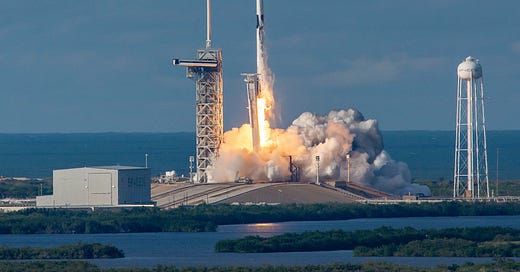The New Space Age
The next half-century is going to be radically different.
by Rod D. Martin
July 20, 2019
For millennia, man dreamed of sailing among the stars and touching the face of the Moon. Fifty years ago, Americans achieved that once-unthinkable dream, one of the greatest accomplishments in all of human history. Perhaps even greater still: those Americans "came in peace, for all mankind."
Countless souls made that achievement possible on Earth. But the men of Apollo 11 itself took their lives in their hands, rode the rocket, flew a ship that had killed three of their close friends just two years before, stepped out onto lunar soil many scientists believed would suck them up like a powdery quicksand never to be seen again, and did all of this in a time when all the computing power in the entire world was less than that which you hold in your personal iPhone.
Heroic hardly begins to describe them.
Then, for half a century, nothing. No great movement into this new frontier. No grander exploration. Mankind built wonders in space to be sure, from Hubble and Vo…




